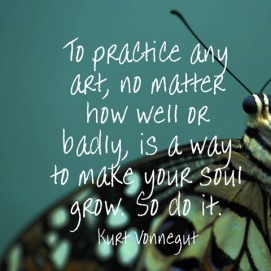new posts in all blogs
Viewing: Blog Posts Tagged with: dream journal, Most Recent at Top [Help]
Results 1 - 7 of 7
How to use this Page
You are viewing the most recent posts tagged with the words: dream journal in the JacketFlap blog reader. What is a tag? Think of a tag as a keyword or category label. Tags can both help you find posts on JacketFlap.com as well as provide an easy way for you to "remember" and classify posts for later recall. Try adding a tag yourself by clicking "Add a tag" below a post's header. Scroll down through the list of Recent Posts in the left column and click on a post title that sounds interesting. You can view all posts from a specific blog by clicking the Blog name in the right column, or you can click a 'More Posts from this Blog' link in any individual post.
By: frankramer,
on 11/19/2014
Blog:
(
Login to Add to MyJacketFlap)
JacketFlap tags:
dreams,
Uncategorized,
dream,
dream journal,
dreamwork,
healing dreams,
dream journaling,
working with dreams,
On Dreams,
benefits of remembering dreams,
Dreamwork Methods,
dream healing,
evaluating dreamwork,
lucid dream,
progress in dreamwork,
Add a tag
When my students do dreamwork (the recording and working with dreams to learn something from the dreams) on a regular basis, what I sometimes get asked is this: How do I know I am making progress in working with dreams?
This is a good question, because unless I am working with someone who knows a lot about dreamwork such as a dream mentor, the answers may not be all that apparent, especially in the beginning. However, in the long run, progress will definitely become more obvious because of the positive changes the dreamer will see in his or life.
Indicators of progress in dreamwork can be seen in the following:
- Dreams become more vivid and easier to remember. A beginner usually has difficulty remembering dreams. Just having the intention to remember dreams will often prompt the dreamer to remember his or her dreams. Need help in remembering dreams? See Tried and True Tips to Better Remember Your Dreams at http://wp.me/p45aiq-5B
- Dreams seem to “come” when one needs or wants them. Just making the intention to do regular dreamwork or participate in a dream class will often encourage the psyche to offer the dreamer a sudden outpouring of dreams.
- Discovering that dreams do respond to requests for information and wisdom with appropriate insights. Asking for a particular dream (Dream Incubation) and getting a helpful answer is truly empowering for the neophyte starting the study of dreams. It’s like meeting a powerful helper for the first time. This experience gives the dreamer confidence to ask for more help from dreams. For information on incubating a dream see Ask and You Shall Receive: Incubating a #Dream at http://wp.me/p45aiq-71
- Experiencing a lucid dream. A lucid dream is one in which the dreamer feels like he or she is awake and aware in the dream, all the while knowing it is a dream. Conscious choices can be made within the dream. One feels one can create the dream. Like dream incubation, this is an empowering to the dreamer. Lucid dreams can be also be requested for or intended in order to heal, problem solve or gain information.
- Experiencing healing, a solution or guidance in a dream or through information received in a dream.
- Discovering and evaluating what contributions dreams have made. After recording dreams for a significant period of time, one can go back and review dreams to find how they related to events and experiences in waking life during that time. This can be an eye-opening experience of discovery when one sees that many dreams do come true, show the processes and transformations one is going through in life, and support and nurture the dreamer from a deeper source.


By: frankramer,
on 11/12/2014
Blog:
(
Login to Add to MyJacketFlap)
JacketFlap tags:
dreams,
Uncategorized,
dream,
soul,
dream journal,
dreamwork,
dream journaling,
working with dreams,
benefits of remembering dreams,
Dreamwork Methods,
Polls on Intuition,
Dreams and visions,
Lissa Rankin,
loss of soul,
role of dreams in spirituality,
soul in dreams,
soul loss,
Add a tag
Do you feel out of touch with yourself? Do you feel that your culture is shallow and vapid? You are not alone. In 20 Diagnostic Signs That You’re Suffering From “Soul Loss,” Lissa Rankin, M.D., states that this is a very common malady in today’s world. She says not only individuals suffer from this but so do cultures. In my opinion, religions, and in particular, churches can also suffer from it. Whenever we, whether individually or collectively, have lost sight of what animates us, what makes us come alive or what drives us, we suffer from a form of soul loss.
Dreams and holding on to a dream are some keys to recover the soul’s enlivening power in our waking life. Dreams come from the soul itself and speak for the soul and its needs. It is no wonder that so many individuals suffer soul loss when they don’t value their dreams and don’t make an effort to remember them or work with them. Institutions lose soul when they lose sight of the founder’s vision or dream for that organization. This is particularly true of religions and churches which become social clubs or babysitting stations for kids when the ties to a deep spiritual connection have been broken or not promoted among the followers.
Therefore, a remedy for recovering from soul loss is studying about dreams, learning both how to work with them and learning from them:
Individually, this means keeping a dream journal and doing dreamwork on an on-going and consistent basis.
Collectively, this means studying and learning from the dreams and visions of the founders. Institutions can recapture their original dynamism by going back to the basics, to be once again inspired by the founders, learning what defined the organization and why it was started in the first place.
Dreams and visions are all about purposes of soul and how soul presents itself in the world. What is your true dream? In that you will find your true inspiration.


By: frankramer,
on 10/28/2014
Blog:
(
Login to Add to MyJacketFlap)
JacketFlap tags:
Uncategorized,
dream,
insight,
dream journal,
recording dreams,
intuitive insight,
dreamwork,
dream journaling,
working with dreams,
On Dreams,
benefits of remembering dreams,
Dreamwork Methods,
insights from dreams,
Add a tag

Recording Dreams
Dreamwork is the practice of regularly recording and reflecting on one’s dream in a conscious and applied manner with the intention to learn from the wisdom of dreams. It is not an easy task. In fact, it is probably one of the most challenging projects a person could take on, and yet, possibly one of the most rewarding.
Freud said dreams were “the royal road to the Unconscious.” Connecting to dreams is a direct method to connect to the Unconscious, the deepest part of you. So if you want to really get to know yourself through and through, doing dreamwork is one of the best ways to do it.
By committing to dreamwork, you are giving permission to the Unconscious to inform your waking life, bringing new and often challenging insights into a consciousness that is often protected from this greater reality by a tough Ego that wants to be safe, secure and in control. Often, the interests of Ego and the interests of Unconscious are at odds. This means:
- You may experience conflicting values in situations where your ego has learned to adapt, appease, turn a blind eye or, conversely, be overly critical and your Unconscious is suggesting a bolder, risky or more loving response.
- You may be presented with information about a situation you would rather not know. Dreams often can see the bigger picture and give information you do not pick up in waking consciousness or they may portend events in the future that may be hard to accept.
- Dreams may show you how powerful you can be if you forgo your fears and act on your dreams. Dreams may show you doing things in dreamtime you are frightened to do in your waking life—but in dreamtime accomplish with ease, grace and sometimes with the help of angelic beings. This is why the phrase “If you can dream it, you can do it” is so true. It’s like the holographic prototype model has already been tested in dreamtime, proving to you it can work.
By committing to dreamwork, then, you are committing yourself to be open to another level of awareness that calls you to move beyond the constraints of Ego limitations and into a world of limitless possibilities. What can be more exciting than that?


By: frankramer,
on 10/22/2014
Blog:
(
Login to Add to MyJacketFlap)
JacketFlap tags:
dreams,
Uncategorized,
dream,
dream journal,
dreamwork,
dream journaling,
On Dreams,
prophetic dreams,
benefits of remembering dreams,
Dreamwork Methods,
foreknowledge,
dream information,
Hippocrates,
manifesting dreams,
surrealistic,
Add a tag

Hippocrates of Kos taught about dreams indicating illnesses.
If you faithfully keep a dream journal you will notice, over time, many things and events that you dream about come true in waking life. It may be the sequence of events that particularly manifest or it may be that you see a person in dreamtime you never met before–but several months after the dream you meet that person in waking life. Then there are some dreams that don’t appear to have any relationship to current reality or seem so bizarre and surrealistic that it doesn’t seem they could ever be making a true statement about anything.
This raises the question of how do you know if a dream might manifest in waking life? From nearly forty years of dreamwork, I have made these observations about my own dreams. You might see if they apply to your own.
- Very realistic dreams tend to manifest in waking life. If I have a dream that is realistic and probable, i.e., I am driving my own car and not some fantasy car, then it probably has something to do with manifesting something in waking life. For example, any physical ailment which I knew about ahead of time in dreamtime presented quite literally and showed up later on a medical test as when years ago I had a dream in which a voice said I had blood in my stool. A medical test actually concurred with that even though a later colonoscopy proved it was nothing to worry about. This rule applies also in cases where the symbolism is present but there is a clear resemblance such as dreaming of having overflowing pipes and end up having diarrhea. This is possible because there is a close proximity to the symbol and waking reality. In fact, Hippocrates, the father of modern medicine, said much medical and diagnostic information of this sort could be gained from similar dreams.
- Somewhat surrealistic or unrealistic events may be relating events in the far off future. Years ago I had a series of dreams in which I was traveling around Hawaii with my brother. At the time I was living in Massachusetts, and so the possibility of this happening seemed a little far-fetched. The island’s scenery was stylized in my dream, not being typical of a specific place on any of the islands. Yet, as I read my dream journal years later, I found that after I moved to Hawaii, we did travel around the island of Oahu as we did in the dream, and we shared certain concerns that showed up in those early dreams.
- Very surrealistic dreams tend to be making a statement about the interior world of the dreamer. Really bizarre, odd or unusual objects in places they don’t usually belong, such as a rare or extinct species of owl in a refrigerator, are most often aspects of the dreamer and need to be looked at as such by asking, “What about me is like this owl?” or “What about me is like the refrigerator?” In this type of dream, I personally have not seen a close or frequent connection to events or objects manifesting in waking life such as opening the refrigerator and finding a rare spotted owl perched next to the orange juice.


By: frankramer,
on 8/27/2014
Blog:
(
Login to Add to MyJacketFlap)
JacketFlap tags:
dreams,
Uncategorized,
dream,
Healing,
health information,
dream journal,
healing dreams,
dream journaling,
working with dreams,
On Dreams,
benefits of remembering dreams,
Dreamwork Methods,
dream healing,
asclepion,
Asclepius,
health benefits of dream journaling,
caduceus,
Rod of Asclepius,
Add a tag

Caduceus: The Healing Rod of Asclepius
With nearly 40 years of dreamwork experience, one thing I can say for certain about my dreams is that the archetypal energy of healing at all levels, spiritual, psychological and physical has been expressed in myriad symbols, processes and themes, indicating to me that the primary purpose of dreams is to heal and make whole.
The Benefits of Working with Dreams to Heal
Learning to recognize when and how healing is at work within is a fascinating aspect of the study of dreams. It was one of the first benefits I clearly saw from keeping a dream journal. (See my blog 6 Health Related Benefits of Keeping a #Dream Journal.) As I grew more adept at working with dreams, I learned that they could be used to diagnose, treat and monitor the progress of any kind of ailment. Over the years, I learned to request information about a piece of health information prior to getting the specific lab results to verify the accuracy of that test. I have found my dreams to be up to this point in time 100% accurate and I have been doing this for more than ten years. And last but not least, I saw healings take place within my dreams which then manifested in my body.
How to Become Adept at Working with Health-Related Dreams
If you want to become adept at exploring your health from the dream perspective, do the following:
- Keep a dream journal and be faithful in recording all the dreams you can remember, even the most minor and insignificant. Many years ago I had an obscure “one-liner” dream which conveyed the cryptic message, “Everyone is working to develop a method of self-healing.” I knew nothing of what this meant at the time but many years later, I saw it would become one the main purposes of my life, and “everyone” referred to all aspects of me!
- Read the groundbreaking book by Patricia Garfield, Ph.D., The Healing Power of Dreams, which gives researched information on how symbols occurring in dreams relate to the body and its state of health. She gives many of the commonly occurring symbols for health in dreams.
- In addition the to common symbols for health and healing; learn your personal dream vocabulary. (See Recognizing Your Personal Dream Vocabulary.) What are your unique symbols for health, healing and healers that appear in your dreams?
- Notice and reflect on all images, processes and symbols relating to health, the medical field, therapists and healers. What are they telling you?
- Learn to request specific health information from dreams (Dream Incubation.) (See Ask and You Shall Receive: Incubating a #Dream.) For example, ask what particular foods do you need to eat to get healthier?
- Request healings to come in dreams.
- Test your dream findings with your medical lab tests or a doctor’s diagnosis. If your dream tells you one thing, and a doctor another, get a second opinion.
Many doctors now are beginning to see the helpfulness of dreams in staying healthy. My doctor always takes my health dreams seriously and so should yours! Hippocrates, the father of modern medicine, is said to have learned about the value of dreams and their relationship to health at an asclepion, an ancient type of hospital which was dedicated to the god of healing, Asclepius. The caduceus, the symbol of medicine which comes to us from this ancient era, depicts snakes wrapped around the rod of Asclepius.


By: frankramer,
on 4/15/2014
Blog:
(
Login to Add to MyJacketFlap)
JacketFlap tags:
dream journal,
recording dreams,
dreamwork,
dream journaling,
On Dreams,
Dreamwork Methods,
keeping records of dreams,
journal,
dreams,
Uncategorized,
dream,
Add a tag

Keeping a Dream Journal
If you are serious about developing a deep connection with your inner self, this task is perhaps the best practice you can do. Keeping a dream journal involves writing down your dreams as they occur. Ideally, this would be just as you are waking up while the dream is still fresh in your mind. So keep a notebook and a pen (or digital diary–there are apps for that now if you can get technical while half awake!) next to your bed. If you are one of those people who can’t seem to remember your dreams, then try keeping a journal of whatever comes to mind that is important to you on a daily basis. For any kind of journaling, keep it simple. That will be the best assurance for encouraging you to be faithful about making regular entries into it. At a minimum each entry in a dream journal should include:
- The date
- A title for the dream (this will help you remember the dream as you remember a movie)
- A detailed description of the dream written in the present tense. Include every color, character, object, background, place, emotional feeling, and emotional nuance. Pay attention to the number of things occurring such as recording if there are 3 books or 2 people. It is important. Find and use a good dream dictionary—one that gives many meanings to each symbol and teaches dreamwork exercises. I like Cloud Nine: A Dreamer’s Dictionary by Sandra A. Thompson.
This practice will usually be all you have time to do on a regular basis. However, depending upon how thorough you want to be, you can do the following:
- Reserve a section either below or next to the dream where you make a note of any dreamwork done on the dream such as making associations with the dream symbols or make notes on what the dream may be about by using the other dream methods described below.
- If you have asked to have this dream prior to dreaming it, you should by all means write down the question or intention before having the dream. The point isn’t to be so thorough in analyzing every dream but to keep an ongoing consistent recording of every important dream and even the minor ones, if you have the self-discipline. You can always come back later and do additional dreamwork on any dream if you have done a good job of recording the dream in detail.
- If you have seen how this dream has helped, you may want to reserve space to add a note about this in the margin or in a space below the dreamwork section.
Also, what appears to be a minor dream to your waking mind can actually end up being of profound importance for the rest of your life, so please pay attention to the very short dreams and ones that don’t seem important. It might not be apparent at the moment, but you will see the dream’s significance in ten or twenty years down the road. You will see that your deeper consciousness is already preparing you for the major tasks that lie years ahead. Also you will want to record dream encounters with healers and guides whose presence you might want to honor later


.jpeg?picon=893)
By: Crystal Otto,
on 3/17/2013
Blog:
WOW! Women on Writing Blog (The Muffin)
(
Login to Add to MyJacketFlap)
JacketFlap tags:
journal,
dreams,
dream,
dream journal,
recurring dreams,
happy ending,
finding peace,
finding closure,
sleep is enjoyable,
Add a tag
by Crystal J. Otto
I’ve enjoyed sleeping for as long as I can remember. My mom may tell a different story about childhood naps and early bedtimes, but as far as I am concerned, sleep is a very necessary and enjoyable activity. I sleep, therefore I dream, and in recent years I’ve incorporated my dreams into my journal. Journaling my dreams has provided me with fabulous material for short stories and blog posts and has also given me ideas on how to enhance my writing to make it more vivid and exciting for the reader.
I’ve suggested dream journaling to those who have diagnosed themselves with ‘writers block.’ I personally have found that dream journaling is a great way to stop those recurring dreams or those that end too soon. Recurring dreams and those that end in the middle seem to have one thing in common—something needs attention or closure. I’ve found that by writing down what I remember about the dream and then adding the unfinished details I can find the closure my sleeping self was looking for. This may not come naturally at first, but the more you journal the easier it gets.

My most recent example was a dream where I was visiting the doctor and he was about to give me some important news, and my alarm starting blaring and I woke up. I had that unsettled feeling, and I grabbed my journal later in the day and wrote a happy ending in which the doctor explained that I was expecting a child. I went on to write about a textbook pregnancy, quick delivery, and gorgeous baby girl with blue eyes and blonde hair. Those unsettled feelings were quickly replaced with joy, pride, and excitement!










This reminds me of author Eric Maisel's "sleep thinking" technique that I haven't used in awhile. Before you sleep or nap, you give yourself a prompt like "I wonder what should happen next?” (in your story/novel), or "I wonder what creative project I should work on next?" or whatever. You try to just wonder about it vs. worrying. A lot times your mind works stuff out as you sleep-ponder!
MP - I can't wait to read more about Eric's technique. What a great idea, thank you so much for sharing! (for anyone else interested, I found Eric's book on Amazon: http://www.amazon.com/Sleep-Thinking-Revolutionary-Problems-Creativity/dp/1580624456)
Marcia and Crystal: I actually do this. I did it with my YA novel that I NEED to send out and with my current WIP--a mg mystery. It works. For some reason, I always write better once I've done it.
Margo - I'm starting to think that I can tell my husband that an afternoon nap is a mandatory part of the creativity process, right? It wouldn't really be a nap, it would be 'work related'...:)
Neat idea, Crystal, and I love the story about how you found out your daughter was on her way! Now I want to check out Eric's book, too.
Thanks Renee! A side story about my daughter was the VERY real dream that I had 2 days before she was born and in the dream she was a cat ... I wish I had re-written that one, but life re-wrote that one for me instead! lol
Thanks for the reminder, Crystal! I used to dream journal all the time using Eric Maisel's technique before I even knew it existed! I didn't use it for stories; I used it for questions I had about life. I would write the question down and then dream on it with a journal, pen, and a flashlight on my nightstand. But I really like your idea of using it for those recurring dreams. :)
You'll have to let me know if it works for your recurring dreams Angela - I was incredibly relieved when I could move forward. I'm curious if it will work for others. Dream on!
I'm glad to know about Women on Writing. Thanks for sharing.
Glad to share - thanks!
About five years ago, I bought a "dream journal" that I keep close and when I wake up, I fill it out. You find a lot of patterns when you reread it. At least I do.
Dream Journal from Journals Unlimited - "Write It Down" series
LuAnn - you bring up a good point. I probably don't look at my dream journal as often as I should ... but I bet there are a lot of patters. Thank you for bringing this up, now I have a plan to pick up my journal from last year this time and see if the patterns are related to time of year and such (which for me, they likely are).
~Crystal